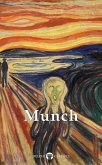In "Early Illustrated Books," Alfred W. Pollard offers a meticulous examination of the convergence between text and illustration in the evolution of book design from the 15th to 17th centuries. The work is characterized by its scholarly rigor and attention to detail, showcasing Pollard's expertise in bibliographical studies. He deftly navigates the historical context of printing technologies, artistic influences, and popular literary trends, providing readers with an enriching understanding of how illustrations transformed literature into a visual experience. This book serves as a valuable resource for scholars and bibliophiles alike, illuminating how early illustrated texts communicated complex narratives and aesthetic ideals through the interplay of word and image. Alfred W. Pollard, a prominent bibliographer and scholar of late 19th and early 20th centuries, was instrumental in the study of book history. His background in literature and his involvement with the bibliographical community lent him unique insights into the cultural significance of illustrated texts. Pollard's meticulous research reflects both his passion for preservation and his drive to advocate for the artistic dimensions inherent in printed works, stemming from an era increasingly driven by mass communication and visual culture. "Early Illustrated Books" is highly recommended for anyone with a vested interest in the history of printing, visual culture, and literary studies. Pollard's engaging narrative invites readers to delve deep into the fascinating world where words meet art, fostering an appreciation for the craft of bookmaking and its enduring legacy.
Dieser Download kann aus rechtlichen Gründen nur mit Rechnungsadresse in A, B, BG, CY, CZ, D, DK, EW, FIN, F, GR, H, IRL, I, LT, L, LR, M, NL, PL, P, R, S, SLO, SK ausgeliefert werden.









